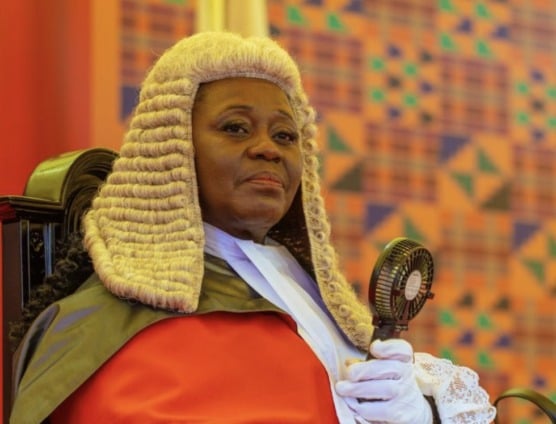The Suspension of Chief Justice Torkornoo and the Ensuing Legal Battle
The Ghanaian judicial landscape was recently thrown into turmoil following the suspension of Chief Justice Gertrude Araba Esaaba Sackey Torkornoo by President John Dramani Mahama. This unprecedented action triggered a series of legal challenges that have put the spotlight on the delicate balance of power between the executive and judicial branches of government. President Mahama’s decision, grounded in Article 146(10) of the Constitution, stemmed from petitions filed against the Chief Justice, prompting the formation of a six-member committee tasked with investigating the allegations. However, Justice Torkornoo swiftly countered the suspension by filing an urgent application with the Supreme Court, seeking to invalidate the President’s action and halt the investigative process. This application set the stage for a high-stakes legal battle that will have far-reaching implications for the future of the Ghanaian judiciary.
The crux of Justice Torkornoo’s application lies in her contention that the suspension should not take effect while fundamental constitutional questions surrounding the process remain unresolved. Represented by Dame and Partners, her legal team argues that proceeding with the investigation while the legality of the suspension itself is in question undermines the principles of due process and fairness. The application specifically seeks an interlocutory injunction to prevent the committee from conducting any inquiries related to the petitions until the Supreme Court delivers a final ruling on the suspension. This request highlights Justice Torkornoo’s determination to challenge the President’s authority and ensure that her rights are protected throughout the process.
Adding another layer of complexity to the case, Justice Torkornoo’s application also seeks to restrain specific members of the investigative committee from participating in the proceedings. She has requested that Justices Gabriel Scott Pwamang and Samuel Kwame Adibu-Asiedu, both members of the committee, be barred from presiding over or participating in any deliberations. The reasons for this specific request remain unclear from the provided information, but it suggests potential concerns about impartiality or conflict of interest. By challenging the composition of the committee, Justice Torkornoo further underscores her commitment to ensuring a fair and unbiased investigation.
Prior to Justice Torkornoo’s own application, the Supreme Court had already faced two separate challenges related to the suspension. Private citizen Theodore Kofi Atta-Quartey and the Centre for Citizenship, Constitutional and Electoral Systems (CenCES) each filed applications contesting the President’s action and the investigative process. However, both applications were dismissed by the Court in 4–1 majority decisions. The five-member panel, led by Justice Paul Baffoe-Bonnie, upheld President Mahama’s authority to suspend the Chief Justice under Article 146(10). Justice Yaw Asare Darko dissented in both rulings, highlighting the complex and potentially contentious legal issues at stake.
The Supreme Court’s earlier decisions to dismiss the challenges brought by Atta-Quartey and CenCES appeared to affirm the President’s prerogative to suspend the Chief Justice. However, Justice Torkornoo’s subsequent application reopens the debate and presents the apex court with an opportunity to directly address the constitutional questions surrounding the suspension. The Court is now faced with the task of balancing the President’s power to act under Article 146(10) with the Chief Justice’s right to due process and a fair hearing. The outcome of this case will undoubtedly have significant implications for the relationship between the executive and judicial branches in Ghana.
The legal battle surrounding Chief Justice Torkornoo’s suspension has become a focal point for discussions about constitutional law and the separation of powers in Ghana. The Supreme Court’s final decision will not only determine the fate of the Chief Justice but will also set a precedent for future cases involving the suspension of high-ranking judicial officials. The case underscores the importance of a strong and independent judiciary in upholding the rule of law and protecting individual rights. As the nation awaits the Supreme Court’s ruling, the case remains a pivotal moment in Ghanaian legal history.


